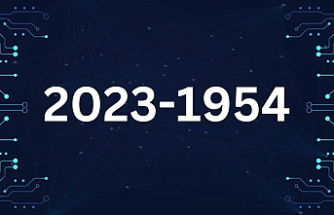An application programming interface (API) is basically an interface that allows two or more software programs to communicate with each other. API usage is increasing all the time thanks to digital transformations and the fact that companies need more and more of their systems integrated in order to keep up. APIs can be made to an industry standard, or they can be custom made by application developers. An API determines the kinds of requests that can be made between systems, the data formats that can be used, the pace of communication, and much more.
Now that you know what an API is, you may be wondering "what is an API portal?"
Portal Definition
API portals bridge the gap between API providers and the developer community that needs to use the APIs. API consumers (typically software developers) need permission to use certain APIs and stay informed on any updates or other changes throughout their development cycle so they can ensure integration goes smoothly, generate an API key for each client, ensure proper functionality, and provide education through developer engagement on discussion forums and other avenues.
Good API portals provide the opportunity to test APIs since most API portals work as ways to package and sell API products. Developers generally expect a way to test software to ensure it aligns with their goals and the systems they're using. Portals aren't just virtual storefronts, though. They also generally offer educational articles, forums, FAQ sections, blogs, and more, so developers and providers can communicate. Developer engagement helps make sure that everything in the API catalog works properly and that any existing bugs are fixed as soon as possible.
Benefits of API Portals
Developers have plenty of motivation to use API portals. They help developers get started on projects easily and determine how their new software solutions can interact with existing systems, and they allow for easy exploration of existing APIs and simple registration to begin using them. Of course, software developers aren't the only ones who benefit from portals. Business leaders can use portals to understand exactly how APIs are benefiting their companies, and technical writers often use them so they can provide detailed information on what exactly each API is for and how they can be used.
Your APIs need to be widely adopted, and even promoted, by developers for them to be used in high-end applications. APIs have practically become the lifeblood of modern businesses since they allow for modern system integrations and for better management of master data and reference data, and with so many providers out there, you're products are unlikely to stand out without an excellent developer portal.
Creating an API Portal
Speaking of great portals, if you're interested in designing one, then you'll need to determine who your target audience is. Similar to starting a business, you need to know what kinds of developers you're trying to cater to and figure out how you can offer APIs that do what they're looking for better than the existing ones. API documentation is crucial, and if you can equip your API explorer with a catalog that briefly explains what each API is and how to use it, you'll be well on your way towards a develop-friendly portal.
API catalogs also make it much simpler for you to register new users and onboard them. It's also a single, convenient place for you to keep track of all uses and gain actionable insights into how you should create APIs in the future. Your catalog can be a hub for authorization API as well, so you can easily make sure only users with proper access can use your systems.
Lastly, it's important to differentiate a portal from an API gateway. The gateway is what actually controls the traffic within your portal, and it manages the workload and balances load times for applications. With a convenient and fast loading portal, you should have few issues achieving wide-spread adoption for your APIs.












